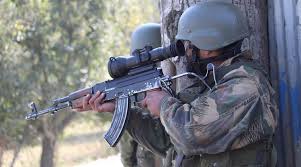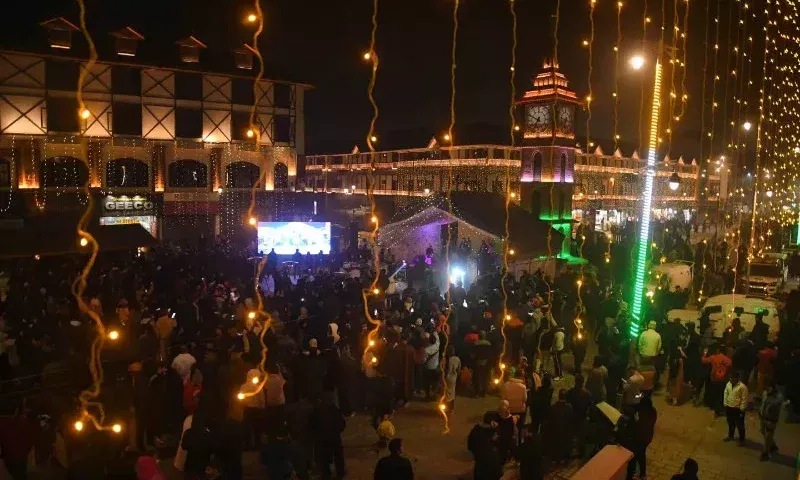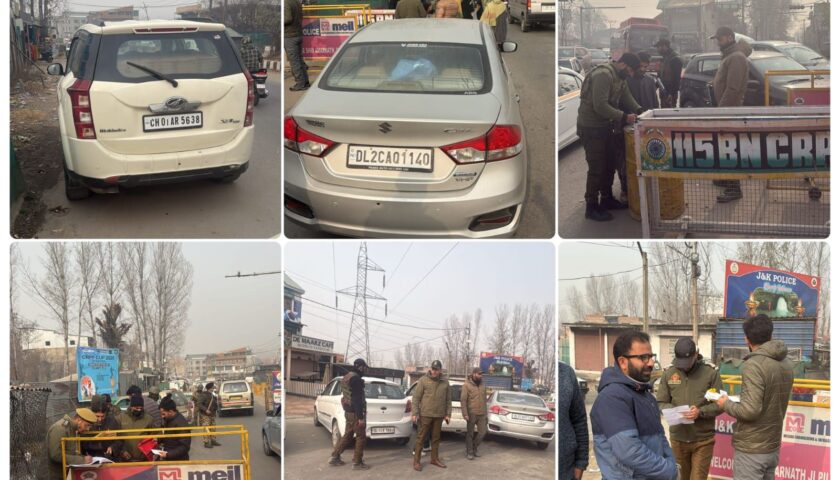Shortly before India’s mammoth elections began in April, New Delhi did something unprecedented: It banned civilian traffic on the only major highway connecting the heart of disputed Kashmir with the rest of the country.
The government cited unspecified security threats for the twice weekly ban, but the move is indicative of the approach Prime Minister Narendra Modi and his Hindu nationalist party have taken to the disputed Himalayan region since taking power in 2014.
Gone are the carrot-and-stick methods of previous governments that saw at least attempting to win hearts and minds as a key part of maintaining security in the Muslim-majority region also claimed by Pakistan. Modi’s government instead has given the military carte-blanche to counter resistance to Indian rule, which means it has taken aim not just at armed militants but also the regular people increasingly supporting their cause.
While deeply unpopular in Kashmir, the campaign has resonated in much of the country, where few issues reach as broad a consensus as that Kashmir must remain a part of India at any cost.
Modi has capitalized on a February attack on Indian paramilitary forces in Kashmir and his response of bombing militant positions inside Pakistan to bolster his campaign-slogan claim to being India’s “chowkidar,” Hindi for watchman. And when the first phase of voting in India’s five week election kicked off in Kashmir on April 11, it came amid a sweeping crackdown with police arresting hundreds of Kashmiri leaders and activists.
Among the districts voting in India’s fifth phase on Monday are Pulwama and Shopian in southern Kashmir. The election concludes May 23.
The crackdown has been good optics for Modi’s Bharatiya Janata Party base, and he hasn’t had to worry about losing votes in Kashmir. In addition to there being just six seats in the state, turn-out for India’s general elections in the region have historically been low, with separatists calling them an illegitimate exercise under military occupation.
“Modi and his party have waged a war against people in Kashmir,” said Nazir Ahmed, a trader in the outskirts of the region’s main city of Srinagar. “This election doesn’t matter in Kashmir. But Kashmir matters for election in India.”
Modi repeatedly cites the airstrikes that followed the February attack, when a self-described Kashmiri member of the Pakistan-based militant group Jaish-e-Mohammed detonated a bomb in the middle of an Indian military convoy, as evidence of his tough, uncompromising stance on India’s archrival.
“India has quit the policy of being scared of Pakistani threats,” Modi said at a recent election rally.
Further efforts to project Modi and the BJP as India’s protectors were made in billboards that went up across the country featuring the prime minister and party president Amit Shah with Indian Air Force pilot Wing Cmdr. Abhinandan Varthaman, who was captured by Pakistan during the February skirmish and given a hero’s welcome when Pakistani forces returned him to India two days later.
India’s Election Commission took the unusual step of asking parties not to use photographs of soldiers in campaign material.
“Optics matter a lot to Modi and his BJP. Be it surgical strikes, or killing militants or jailing separatists or clamping down on resistance groups, they are more of a well-oiled PR machine. They won’t do anything quietly even if doing so has proven to be effective in the past for other parties,” said Amit Kumar, a political historian in Srinagar, Kashmir’s main city.
BJP leaders say the party has been pursuing national objectives and refuted being unfairly tough on Kashmir.
“If you want peace in Kashmir, the army needs to have a free hand,” said Kavinder Gupta, a BJP leader in the region’s Jammu city. “Once there’s peace, soldiers will be back to barracks, but remember Pakistan is out there with its agents in Kashmir to create chaos.”
Opposition parties have consistently said that Modi and his party are using Kashmir to pivot away from his economic record and other issues such as youth unemployment and farmer suicides.
Kashmir is divided between India and Pakistan but has been claimed by both in its entirety since the two nations gained independence from British colonial rule in 1947 and immediately started fighting over the territory.
Initially, the anti-India movement in the Indian-controlled portion of the territory was largely peaceful, but after a series of political blunders, broken promises and a crackdown on dissent, Kashmiris launched a full-blown armed revolt in 1989, seeking unification with Islamabad or complete independence for the entire region.
The territory continues to be one of the most militarized regions in the world and most residents favor and end to Indian rule. At least 70,000 people have been killed in the conflict in last three decades.
Militarization has only increased under Modi, and soldiers now fire shotgun blasts that routinely maim and blind protesters and blow up residential homes with explosives during counterinsurgency operations.
Kashmir has been so central to Modi’s strongman narrative that even unpopular economic policies have been justified by his government as necessary for national security.
Modi introduced demonetization to take 1,000 and 500 rupee notes out of circulation, disrupting business and forcing millions of people to stand in lines to change out their suddenly-worthless bills, as a measure to curb black market money.
The Central Bank later said the measure had mostly injured India’s poor. But Modi and his Cabinet colleagues defended it as a way to stop “terror” funds reaching Kashmir separatists.
While campaigning Modi and other BJP leaders have also cast their party as the antithesis of their main opposition, Congress, which ruled India for about half a century starting from independence.
Modi repeatedly accuses Congress of being soft on Pakistan, soft on terror, pandering to Muslims for votes and pampering Kashmiri separatists.
But experts say Congress statecraft had carefully calibrated ways to keep dissent in check through a strict surveillance regime, while maintaining an air of democracy working in Kashmir.
“Once in power BJP realized that those gaps were actually deliberately placed safety valves allowed to give vent to Kashmiris. With nothing else to show, they are going after these safety valves one after another,” said Kumar, the historian.
“They’ve little time to bother for the long-term consequences of their muscular approach on Kashmir as long as it helps them consolidate power nationally in (the) short term,” he said.




